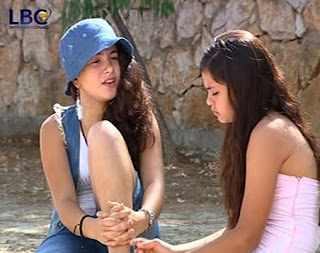
This spotlight interview is with the Lebanese civil society organization Aie Serve.
DL: What is Aie Serve’s mission?
AS: First, Aie Serve was a community service youth group aiming to spread cultural awareness, love, and tolerance, help and return to the poor and underprivileged, and promote open-mindedness, through action and experience, all for the sake of an improved future for humankind. Aie Serve was a student-based group founded on March 23, 2007 with the goal of spreading love and acceptance via increasing awareness and education. The word “Aie” is a Japanese word pronounced as “I” and means “Love” so the name of group is Love and Serve or I Serve...others. Although recently established, Aie Serve can already take pride in several accomplishments.
Now Aie Serve's mission is:
Aie Serve is a youth non-governmental organization that works on community service and development to promote the values of respect, acceptance, and love to achieve an improved future for humankind.
DL: What are the biggest obstacles facing Lebanese youth today? How can government play a more active role in creating opportunities for Lebanese youth?
AS: One of the main Lebanese youth obstacles are job opportunities where most of the educated youth are not finding a proper job that fulfills their dreams. These Lebanese youth are finding difficulties in their day life by facing economic barriers and emigrating from the country. As to the government side, it should take severe measures toward the Lebanese youth obstacles and try to discover the roots of them. If the issue is just economic, hopefully they will come up with a plan to solve the problem.
DL: Are you optimistic that the lowering of the voting age from 21 to 18 will take effect for the upcoming municipal elections in 2010 as agreed in principle by the previous parliament? Does Aie Serve have any plans on projects regarding these elections?
AS: Lowering the voting age from 21 to 18 looks is pretty appealing. Yes we support that action but on the other side giving that responsibilities for us as Lebanese youth we should be educated enough to understand what is the meaning of this new responsibility and think wisely before we act. A new responsibility to decide our political representative now for upcoming municipal elections in 2010 and later for our parliament elections should be our new hope for a better tomorrow.
As Aie Serve is non-political non-religious organization, we are not going to take a stance concerning elections nor will we take direct role in the elections or lowering the voting age, but rather by working hand in hand with Lebanese youth to develop their skills via learning circles, camps, workshops, training sessions, and discussion panels we are going to make a difference and be a main partner in civil society movements.
DL: What role do you see technology playing in increasing coordination and outreach with other civil society organizations? Do you use any social media (SMS, Facebook, Twitter, YouTube, etc.) in organizing your activities?
AS: Technology, which is essential nowadays in our life, is a tool to facilitate and serve our goals and make our dreams true! Yes, technology is our partner in this field the field of civil society, it is a great asset to mobilize and outreach and the amazing effect of the social media which is booming these days as Facebook, SMS, Twitter, YouTube.
Kindly visit our website, www.aieserve.org, join our Facebook Page, and frequently check our profile on www.LebanonSupport.org.
5. How do you sustain the interest of youth while maintaining realistic expectations about the change that can take place in their communities and in Lebanon?
DL: Finding interest of youth and maintaining it is the the most challenging aspect of managing a volunteer-based NGO but it is feasible nonetheless. Youth's interests change over time and are easily affected by the external environment. We able to keep an interest in what we are doing and what we are looking for while keeping in mind our mission and vision through continuous communication with our members based in our weekly meeting, by including everyone in the planning and decision-making and simply through our continuous work and accomplishments, whether on the organizational level or through the projects and campaigns we do.
DL: What projects will Aie Serve undertake in the near future?
AS: Lately we are working on a project called Middle East Expedition as part in partnership with Europe Expedition. This project will take place in August 2010 in Lebanon, Syria, and Jordan. We are also preparing for a day of food serving for the needy and another day for the elderly during the holy month of Ramadan. Moreover we are continuously working on launching Learning Circles and training programs. Last but not least we will be starting the phase 2 of a recycling campaign in schools in partnership with Holcim.
Safadi Foundation USA thanks Aie Serve for answering our questions and congratulates them for a job well done. For more information on how you can support Aie Serve in its mission for a better Lebanon, please visit there website at www.aieserve.org.









